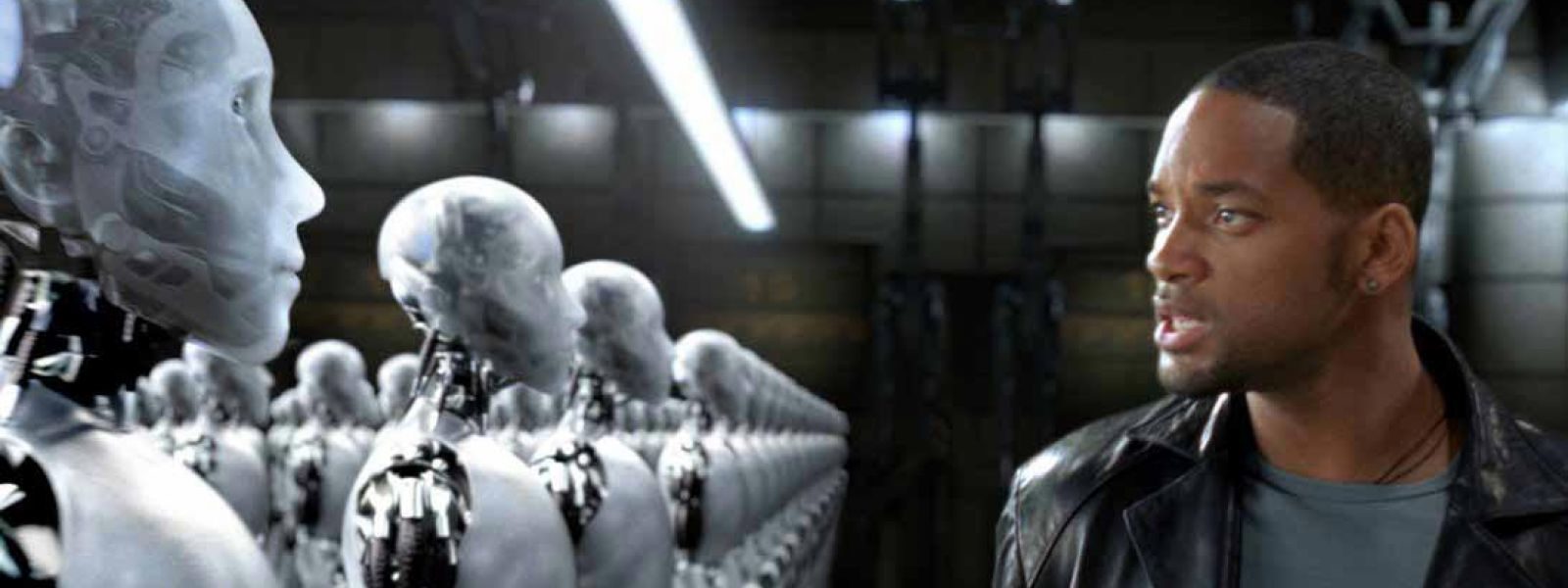
30 Jan Language and Technology Evolve Only as Fast as the Humans who Speak it and Make It
Two questions: 1) Is technology going to replace us? (Ironically, the “age-old” one.) 2) Does language really evolve so fast? I want to bring perhaps a different perspective, which others may have evoked in other places.
As to technology, it is possible that AI becomes powerful enough to reproduce, with significant accuracy and using idiomatic constructions, what’s said in repetitive settings, e.g., a courtroom, or even many conferences. I don’t see that as an impossibility. But even if or when that happens, will robots entirely replace human beings?
The example I always bring back in conversation is that of airline pilots. The autopilot has existed since the early twentieth century in primitive form, and these professionals have often expressed worries that the human element would become obsolete. I don’t, on the other hand, see dozens, let alone hundreds, of passengers entrust their lives entirely to a computer without any kind of human agent. And if we think a conference or a court proceeding has repetitive elements, think of how repetitive and predictable a commercial flight is (takeoff, climb, cruise, descent, landing, all on carefully predetermined flight paths – this is a good thing, by the way). The third role in the cockpit, that of the flight engineer, may have disappeared due to technological advances, but that of the first officer is there to stay: one, because many flights are a long affair, and to entrust the entire duration of the flight to a single human being acting as a “check pilot” for the computer is extremely risky, and two, because even on short flights, two pairs of eyes and ears are always better than one.
You might say, “Alright, but an unchecked error by an automatic pilot can lead to death,” and that is true, but as we all know, something getting “lost in translation” can have serious implications in a person’s or in many people’s lives! Court or medical-consultation room aside, think of how serious the global situation could get with world leaders entrusting their communication to machines alone. Suffice it to say that something worse than a plane crash could result.
As disruptive as technological developments can be, translation and interpretation are as old as language itself, so as long as there are humans, the language profession will be here to stay. Today it enjoys more status and prestige than it ever has, and it should remain a well-respected profession provided that we can continue making a case for its usefulness – rather, necessity – better still, its simply being a permanent part of the human ecosystem, like agriculture, war, craftsmanship, homemaking, and everything else.
The other sell will be to convince the population that speaking and writing well is better than speaking and writing poorly. (Just think: if people are not convinced of this, then any “bilingual” with a really good “translation app” will steal our jobs in a few years.) But the population is already convinced of this truth. Observe the humility of those who know they have trouble expressing themselves properly. Those who use lower registers instantly recognize a higher one when they hear it, and regardless of people’s attitude about the proper use of language, it is universally agreed that speaking and writing well takes more effort and skill than doing so badly. So here, too, if translators and interpreters take their language skills seriously, it need not be difficult for the profession to maintain and even improve its ranking.
Which leads to the second question: does language really evolve so fast? I was privileged to study under world-renowned conference interpreters who – and they would readily admit this – were themselves privileged enough to enter the market at a very favorable time in history (the latter half of the 20th century). What’s more, they got to travel constantly, live in different places where their languages were spoken, heck, even grew up doing this, since they were the sons and daughters of diplomats and dignitaries. A lot of the literature written in the field puts forward this admittedly elitist ideal, namely that one ought to travel a great deal and spend significant amounts of time in the countries in which their languages are spoken.
 While I will be the first to encourage this sort of thing and will even concede that those who do so have a better chance at being the best – nothing replaces living in your language of choice 24/7 – this also overlooks the very great number of language professionals whose parents were not diplomats and who do not have thousands of extra dollars or five weeks of free time per year to go live in an Airbnb in Guangzhou, Amman, Bucharest, or Rio de Janeiro. And yet those for whom finances or circumstances are an impediment to travelling far or for very long are still held to the same professional standards and must keep their language skills top notch.
While I will be the first to encourage this sort of thing and will even concede that those who do so have a better chance at being the best – nothing replaces living in your language of choice 24/7 – this also overlooks the very great number of language professionals whose parents were not diplomats and who do not have thousands of extra dollars or five weeks of free time per year to go live in an Airbnb in Guangzhou, Amman, Bucharest, or Rio de Janeiro. And yet those for whom finances or circumstances are an impediment to travelling far or for very long are still held to the same professional standards and must keep their language skills top notch.
To do this, we are told incessantly that this includes “keeping abreast of language developments.” For beginners, this is often daunting – especially if they have more than two working languages. Not only do they not have the time or money to travel, they are also told that to be good, they must know everything! Now, things do end up working out for people, and beginner’s trepidation is normal. I would like, nonetheless, to revisit this idea of the “speed at which language evolves.”
Well, it’s not the same across the board. If you mean information technology in English, then yes, language does evolve extremely fast, with neologisms coming out all the time, so much that other major languages that regularly interact with English often just calque or even borrow the word. But this is not the same by any means in other fields or in other languages. Is it really necessary to be anxious about this? By all means, work very hard, maximize your language exposure, and practice a lot. But does that mean you need to read all the cutting-edge literature in all your languages and spend three weeks per year in those countries where they are spoken? Does it mean you must try to make friends with fifteen-year-olds and learn their slang to stay “relevant” or “in”?
The truth is that we are human beings, and so are the people for whom and whom we interpret. Changes in our own lives, most of the time, come about very slowly and gradually; it is no different for the eight billion other people on this planet. If you listen to a recording from a hundred years ago, provided the audio quality is adequate, you will have no difficulty understanding the speaker. And a hundred years is longer than most people get to live. So again, here, just as with technology, I would say, “Don’t worry about it too much.” Chris Durban said that the best do keep their language skills very high anyway, regardless of where they live. Do everything you have to do, and do it well, but don’t panic about suddenly not understanding your language tomorrow because you weren’t up at two a.m. to catch some hot publication you should have read. Don’t be thinking that all your clients will simultaneously come to you and say, “We don’t need you; this software does it just fine.” The likelihood of either of those things happening is not worth losing sleep over.
 Jules Lapprand grew up in Victoria, British Columbia, and spent a significant part of his adult life in Montreal, Quebec. He completed a translation certificate from Spanish into English at McGill University (Montreal) in 2016 and a Master’s in Conference Interpreting at York University (Toronto) in 2019. He has worked as a freelance translator and interpreter since 2018. Outside of work, he enjoys literature and music, martial arts, and road trips. He lives in central Michigan with his family. E-mail Jules at TNO_editor@najit.org.
Jules Lapprand grew up in Victoria, British Columbia, and spent a significant part of his adult life in Montreal, Quebec. He completed a translation certificate from Spanish into English at McGill University (Montreal) in 2016 and a Master’s in Conference Interpreting at York University (Toronto) in 2019. He has worked as a freelance translator and interpreter since 2018. Outside of work, he enjoys literature and music, martial arts, and road trips. He lives in central Michigan with his family. E-mail Jules at TNO_editor@najit.org.
Main photo taken from Ética para robots by Antonio Orbe, at Sinapsis, under the CC BY 3.0 ES license. Body photo taken from QUÉ VER EN BUCAREST: EXPLORA LA CAPITAL DE RUMANÍA EN UNO O DOS DÍAS by Vero Boned at Sinmapa web de viajes, under the CC BY-NC 4.0 license.

I honestly do not believe we will be replaced as interpreters. Nor even as translators. I wrote a novel in English and then translated it into Spanish by Google. I was duly surprised for how accurate the translation came out, nevertheless, I had to work for almost two weeks to clean out the many mistakes that had come out.
As we interpreters know too well, context changes everything. I do not believe it is possible to interpret in a courtroom and have a good-enough program to do it a consecutive, much less a simultaneous.
Excellent article. I’m a certified court Interpreter with ES as my language pairs. I’m also a medical Interpreter and whether it is in a legal setting or a medical setting, LEP folks will often express themselves in a manner that is very different to how I have heard that same topic/issue said before by other LEP’s from the same country. Makes our profession very exciting and sometimes exhausting.
I think most of us agree that translators and interpreters won’t be replaced by a universal translator any time soon but what we can’t ignore is the economics associated with this field. Big corporations are always going to look for or by restricted by the economics associated with translation and interpretation requirements, thus looking for ways to cut costs or limited by their budgets. In my opinion, that’s the real driving force behind all the ML/AI out there. That said, ML/AI will always be limited by use case material, quality of text and audio, education of the speaker, etc. Those components for the near term will always result in quality produced by a human being able to address and produce the translation and provide quality interpretation. Thoughts?
Yes, excellent analogy with pilots that I use all the time as well. Same for CPAs, they are “replaceable” with Watson and common software, but the human component is key. I would say the hard sell in the United States will be to convince courts, hospitals and conference organizers that we need a human at the wheel to make sure everything is going well. This is because most people in the United States don’t even understand in the least the complexities of language. Also, for instance in FR>EN, accents can be quite difficult to decipher and machines might not be able to do that. We need to use machines as a tool, like Otter.ai, for instance, to support us in our jobs. They should not be seen as a threat, but rather as a companion to make our tasks easier.
AI will give the top 25% of interpreters super powers, like AI-assisted conference interpreters and court interpreters, and everywhere else like customer service and perhaps even in medical scenarios will be largely replaced or heavily supplemented by gist interpreting solutions.
My background is in computer science. I can tell you there will be new opportunities emerging very soon. One, is going to be the need for data-labeling.
You have 2 types of language models in machine learning: general language models, which are open source, publicly available, and “fine-tuned” models. Producing the latter will require skilled interpreters and translators to label the data. The labeling looks like a spreadsheet. Very simple.
“Hola”, “Hello”
For speech-to-text models, it is
“location of audio clip”, “what the clip says”
Data labeling will be a highly valuable skill.
Lastly, AI will only work if it is open-source, meaning the public is involved. Any attempt by an organization to deploy a proprietary model –like KUDO is attempting to do–will be met with failure at best and intense opposition from linguists and courts at worst.
These models can be dangerous. The public must have the opportunity to view the training data. Data labeling = training data.
Interesting article. AI has really improved quite a lot in the last few years, and ChatGPT is a good example of such improvement, but we HUMANS are special beings still unkonwn since Science has not figured out yet what we really are, and an example of that unknown part in us is our MIND. Bottom line, since we humans, creators of AI, haven’t still discovered about ourselves thoroughly, it is still unrealistic to think AI will replace us, in some areas, like repetitive tasks, Yes but not in everything else.
Dear Jules Lapprand,
I came looking for insight about the AI topic because, believe it or not, I did lose sleep over it last night. Your article is just from January 2023, and since then the topic of AI is being in every media outlet and even in Congress to figure out if it needs to be regulated. AI develops at a speed that we can hardly comprehend, so even six months after the publication of your article, do you still believe that human interpreters will not be replaced in the short future by AI? Let’s say, in the next 6 months, or in the next year based on the speed in which it develops?
Hi Vanessa,
What we common, non-expert mortals have to work with is the following: make technology your friend and turn it into a tool and ally. As with anything that scares you, learning everything you possibly can about it can really take the edge off. Run toward what frightens you! This worked for me with driving, flying, poisonous insects, and more.
Perhaps some helpful insight from someone I subscribe to (who is an expert in macroeconomics). No crystal ball, but again, let’s work with what we have!
Will AI steal my job? https://youtu.be/zXwF0UxUqNw
Is the AI Revolution Here? https://youtu.be/8jEmIDwqnL4
This is me answering you in my personal capacity, not NAJIT, by the way.
Best regards!
Thank you for your reply. I’ll check out those videos.
Anyone who has not watched the biographical drama Hidden figures should and those who have, well I strongly recommend that you watch it again… why? because this movie is analogous to the precarious situation we face. Watch and take note of a main-frame computer being moved into the building and a pool of calculators (women who performed mathematical calculations) diligently work while oblivious to the looming extinction of their profession. Many are saved because their supervisor prepared them by teaching them FORTRAN (a programing language used mostly in science and engineering) and they moved into jobs programing the main-frame. This March, in Albuquerque I witnessed dozens of experienced professional court interpreters voluntarily provide the data needed to train AI. The data they provided was intended for training the robot on display. While I agree that solving the language barrier is wonderful for humanity and I agree that the sooner the better – I’m left to ponder… Who will teach us FORTRAN?